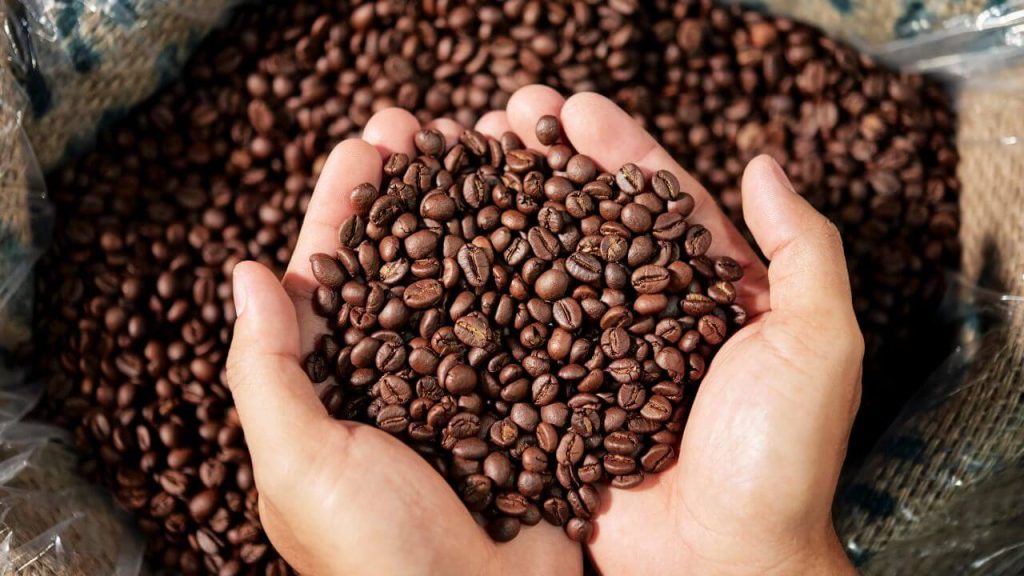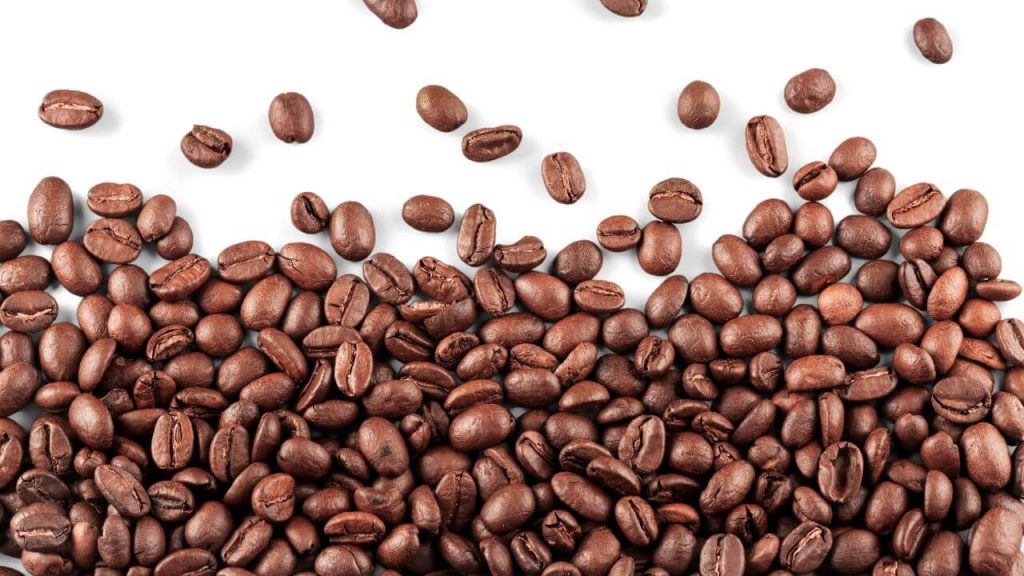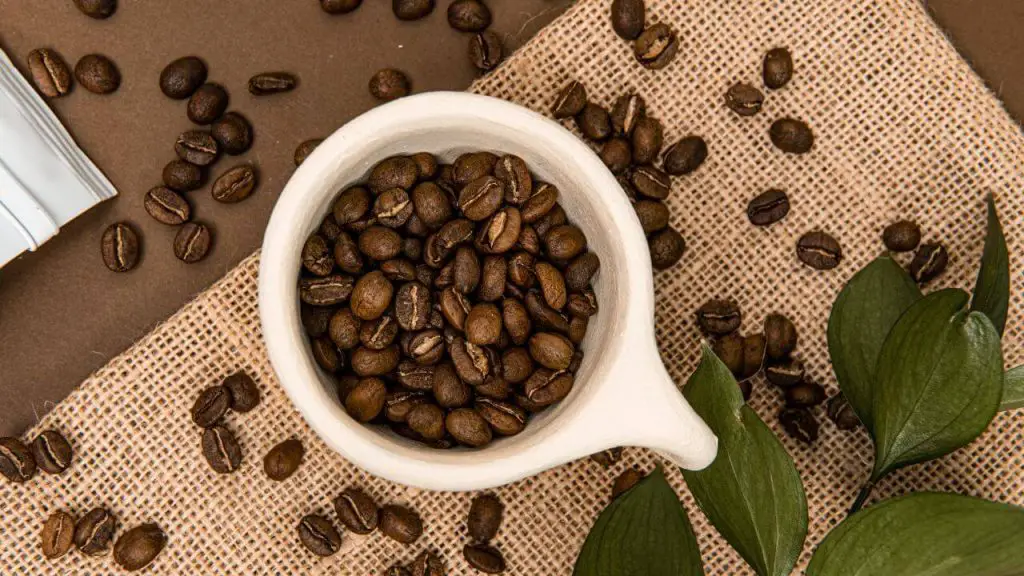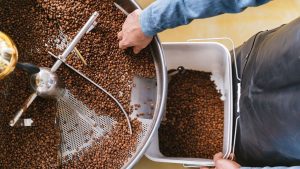Roasted coffee beans remain fresh for about 2-6 weeks. After this period, flavor and aroma quality declined.
Understanding the shelf life of coffee beans is crucial for any coffee enthusiast. Freshly roasted coffee beans are the lifeblood of a flavorful cup of coffee. Once roasted, the beans release gases in degassing, which is significant in their freshness. Ideally, you’ll want to consume them while they’re at the peak of their flavor, which typically falls within a month from the roast date.
As coffee beans age, they gradually lose the essential oils and aromatic compounds responsible for that invigorating coffee scent and rich taste. Proper storage, which includes keeping beans in a cool, dark place in an airtight container, can help maximize their lifespan. For the best coffee experience, buying beans you can use within that optimum timeframe is advised only to ensure you always sip the freshest brew.
Shelf Life Of Coffee Beans
Understanding the shelf life of coffee beans is crucial for any coffee lover. It’s the key to enjoying a rich and robust cup every time. The lifespan of coffee beans can vary, but knowing how to store them properly ensures the best flavor and aroma.
Factors Affecting Freshness
Freshness is paramount for the perfect cup of coffee. Several factors influence how long beans maintain their best qualities:
- Roast date: Freshly roasted beans preserve flavors better.
- Air exposure: Oxygen degrades coffee oils over time.
- Light: Direct sunlight can spoil bean quality.
- Moisture: Humidity leads to mold and loss of taste.
- Temperature: Excessive heat or cold affects the beans.
Typical Lifespan Explained
The typical lifespan of coffee beans may surprise you:
| Condition | Shelf Life |
|---|---|
| Whole Beans | Up to 1 month after the roast date |
| Ground Coffee | 1-2 weeks for peak flavor |
Green Beans Vs. Roasted Beans
When diving into the world of coffee, the shelf life of your beans is crucial for that perfect cup. Coffee lovers often debate the longevity of green beans versus roasted beans. Each type has its timeline for freshness and optimal flavor. Let’s explore how long these beans last and the best storage methods.Storage Potential Of Green Beans
Green beans, or raw coffee beans, are the seeds extracted from the coffee plant’s cherry. They haven’t been roasted and thus retain a higher level of moisture. This characteristic contributes significantly to their longevity.- Shelf life: With proper storage, green beans can last up to a year or more.
- Storage conditions: Keep them in a cool, dry place, away from direct sunlight.
- Packaging: Airtight containers or cotton bags work well.
| Temperature | Humidity | Expected Shelf Life |
|---|---|---|
| Room Temperature | Low | 12 months |
| Cooler than Room Temperature | Very Low | Up to 2 years |
Roasted Beans: A Timelier Consumption
Once beans are roasted, their chemical composition changes. This results in a limited timeframe to enjoy them at their peak. Freshness is key to a delicious coffee experience. Post-roasting, coffee beans lose their flavor due to oxidation and moisture loss. Whole Bean Coffee: – Best within one month of roasting. – Store in opaque, airtight containers. Ground Coffee: – Enjoy within two weeks for maximum freshness. – Prevent exposure to air and light.Roasting Date: A Freshness Indicator
Coffee fans agree that the date of roasting matters immensely. This single piece of information reveals freshness and impacts your coffee’s taste. Let’s decode the roasting date and learn why it’s pivotal for a great cup of coffee.Interpreting The Roasting Date
Examining the roasting date provides insight into the peak flavor period. Post-roasting, beans release gases, including CO2, which affects flavor. Below, see the typical flavor timeline:| Timeframe | Process | Flavor Impact |
|---|---|---|
| First 24 Hours | Degassing | Mild, understated flavors |
| Days 2-14 | Flavor stabilization | Rich, optimal flavors |
| Post Day 14 | Oxidation | Stale, flat notes emerge |
Why Roasting Date Matters
The freshness of coffee beans is closely tied to their roasting date. Unlike wine, coffee does not improve with age. Oxygen and moisture are enemies of coffee beans, leading to staleness. Here’s how the roasting date impacts your coffee:- Freshness: Fresher beans equal more flavorful, aromatic coffee.
- Taste Profile: Fresh beans maintain the coffee’s intended taste profile.
- Quality: Premium beans have a roasting date, signaling transparency and quality.

Optimal Storage Techniques
Keeping coffee beans fresh is all about the right storage. Here, explore the best ways to extend the life of your favorite brew. Proper techniques ensure every cup stays flavorful.Void Of Light And Air
Light and air are coffee’s greatest enemies. These factors speed up the oxidation process, producing stale, flavorless beans. Keep beans in a cool, dark place to enjoy the best coffee. A cabinet away from the oven or any heat source is perfect. Maintain a consistent temperature to avoid any damage from heat fluctuations. Coffee’s shelf life improves dramatically in the right environment.Best Containers For Longevity
To maximize freshness, choose the right container. It should be airtight and opaque. A vacuum-sealed canister with a one-way valve is ideal. This type of container lets carbon dioxide out but keeps oxygen at bay. Consider materials like ceramic, glass, or metal. Avoid clear containers unless you’ll store them in a dark place. Before sealing beans away, remove as much air as possible. A kitchen scale helps measure portions to store, keeping the main supply sealed and untouched.| Container Type | Material | Light Protection | Airtight Seal |
|---|---|---|---|
| Vacuum-Sealed Canister | Metal, Ceramic | Yes | Yes |
| Mason Jar | Glass (Use in Dark) | No | Yes |
| Original Packaging | Varies | Not Always | Use Clip/Sealer |
- Avoid plastic bags.
- Use containers with minimal headspace.
- Label with a roast date for tracking freshness.
The Enemies Of Fresh Coffee
Welcome to our deep dive into the world of coffee freshness. We all love that rich, aromatic cup of coffee in the morning. To keep that experience perfect, knowing what can make beans lose their charm is essential. Here, we talk about coffee’s four archenemies: oxygen, moisture, heat, and light.Impact Of Oxygen And Moisture
Oxygen and moisture are coffee’s kryptonite. They start a process called oxidation. Think of it like rust for coffee beans. It steals away the flavor and aroma we all love. The same happens if beans get wet. They lose their personality, becoming bland and lifeless. Here’s how to fight these freshness foes:- Seal your beans tight in an airtight container.
- Please keep them in a cool, dry place away from steam or water.
- Use a vacuum-sealed canister, if possible, for extra defense.
Heat And Light: Subtle Spoilers
Despite appearing harmless, heat and light are sneaky culprits. Accelerating chemical reactions, heat causes beans to go stale fast. Equally detrimental is light, which can lead to photo-oxidation, another flavor thief. Essential to thwarting these subtler villains is:
| Do’s | Don’ts |
|---|---|
| Store beans in a dark, cool cupboard. | Never leave them on a sunny windowsill. |
| Consider opaque, light-blocking containers. | Avoid clear containers that let light through. |
Freezing Coffee Beans: Yay Or Nay?
Is it a good idea to freeze your coffee beans? Let’s delve into the pros and cons to decide if freezing coffee beans is the way for longer shelf life and preserved flavor.Pros Of Freezing Beans
- Longer shelf life: Freezing can extend the beans’ freshness period.
- Flavor preservation: Keeps the original flavors intact for months.
- Convenience: Always have fresh coffee on hand by freezing in batches.
Cons And Risks Involved
| Cons | Risks |
|---|---|
| Flavor Loss: Improper sealing leads to taste decline. | Moisture Issues: Freezer burn can ruin beans. |
| Convenience: Requires planning and proper storage. | Contamination: Odors in the freezer may affect beans. |
Grinding: Timing Matters
When getting the best flavor from coffee beans, timing is everything. Many coffee lovers agree that coffee beans should be ground right before brewing. Grinding coffee is not just a preparation step but a crucial part of creating an aromatic cup of freshness. Let’s dive deeper into the importance of grinding and its impact on the coffee’s shelf life and taste.
Freshness Post Grinding
Ground coffee starts losing its freshness almost immediately. Once ground, the coffee’s surface area expands dramatically, exposing it to air, moisture, and light, speeding up the oxidation process. Oxidation dulls the coffee’s flavor, making it stale.
- Oxygen reacts with compounds in the coffee.
- This reaction changes the taste.
- Staling happens faster after grinding.
Experts find that coffee grounds lose their fresh flavor after just 30 minutes. Brew your coffee soon after grinding to enjoy the rich, full-bodied taste.
To Grind Or Not To Grind In Advance
Should you grind your coffee beans well before brewing? The answer is generally no. To maintain the peak flavor of your coffee, consider these points:
| Grind in Advance | Grind Before Brewing |
|---|---|
| Convenience for busy mornings | Optimal freshness and flavor |
| Possibility of stale coffee | Extra time needed for preparation |
| Easier for large batches | Best for individual servings |
Can Bad Coffee Make You Sick?
Stale Vs. Spoiled Coffee Beans
Knowing the difference between stale and spoiled is key. Stale beans lose flavor and aroma over time. They won’t harm you. Spoiled beans, on the other hand, result from moisture and mold. They look off, smell bad, and should not be consumed.- Stale Beans:
- Lack freshness
- Flat taste
- No harm if consumed
- Spoiled Beans:
- Visible mold or odd colors
- Unpleasant smell
- Potential to make you sick
Health Implications Of Old Beans
Drinking coffee made from old beans might cause stomach discomfort or even foodborne illness. Spoiled beans might contain mycotoxins, which are harmful when ingested.| Possible Symptoms | Risk Level |
|---|---|
| Nausea | Medium |
| Stomach pain | High |
| Vomiting | Medium |
| Diarrhea | High |
Taste Test: Recognizing Stale Coffee
Welcome to our helpful guide on the Taste Test: Recognizing Stale Coffee. Understanding the freshness of coffee beans is crucial for any coffee enthusiast. Let’s unlock the secrets to ensure you always savor the best cup of coffee.Flavor Profile Of Fresh Versus Stale Coffee
The journey of taste begins with fresh coffee beans. They exhibit a vibrant array of flavors. These include fruity or floral notes, a pleasant acidity, and a satisfying aftertaste. In contrast, stale coffee often tastes flat or cardboard-like.- citrus or berries in fresh beans,
- or the need for more complexity in stale ones.
Visual And Olfactory Clues
Visual inspection is your first step to identifying coffee freshness. Fresh beans should be glossy due to natural oils. Has a consistent color without any dullness? Stale beans often appear dry and lackluster. Next, trust your nose with an olfactory test.- Fresh beans give off a strong, appealing aroma.
- Stale beans have a weaker scent.
Extending Coffee Bean Freshness
Discover the longevity of your coffee beans and optimal storage tips to ensure peak flavor. Uncover the secrets to maintaining the freshness of your beans and enhancing your brewing experience. Freshness is key in enjoying the full flavor your coffee beans can offer. Once roasted, beans begin a natural process of degassing and oxidizing. This leads to a gradual decline in taste. Proper storage and care can extend the life of your precious beans. The aim is to keep them fresh and flavorful for as long as possible.Reviving Stale Coffee Beans
Stale coffee doesn’t have to be the end. Breathing new life into beans that have lost their kick is worth a shot. Shortening brewing time helps in extracting less bitterness. A pinch of salt can also reduce the stale taste. Melting chocolate and other spices like cinnamon can mask staleness when added to the brew.Best Practices For Preservation
Maximizing the shelf life of your coffee beans is manageable. Follow these recommended practices:- Store in airtight containers to restrict the flow of air.
- Avoid sunlight and heat exposure as they speed up aging.
- Consider a dark, cool place like a pantry for storage.
- Minimize contact with moisture by keeping beans dry.
| Action | Benefit |
|---|---|
| Use opaque, airtight containers | Protects from light and air |
| Store at room temperature | Keeps beans stable |
| Keep away from moisture | Prevents mold growth |
| Grind only what you need | Preserves freshness in remaining whole beans |
Remember, freshly roasted beans offer the best experience. These preservation methods do not restore the original quality. They merely extend the current state of your coffee beans. Enjoy your coffee at its best by using beans within a month of roasting when possible.
Frequently Asked Questions Of How Long Are Coffee Beans Good For
What Is The Shelf Life Of Coffee Beans?
Fresh coffee beans typically last 3 to 4 weeks when stored properly at room temperature in a cool, dark place.
How Should I Store Coffee Beans?
Store coffee beans in an airtight container away from light, heat, and moisture to preserve quality.
Can Coffee Beans Expire?
Coffee beans don’t expire like perishable food, but their flavor degrades over time, especially if not stored correctly.
Do Whole Beans Last Longer Than Ground?
Whole coffee beans last longer than ground coffee as they have less surface area exposed to air, retaining freshness.
What Signs Indicate Stale Coffee Beans?
Stale coffee beans have a dull aroma and lackluster flavor and may appear visibly dry or oily past their prime.
How Does Freezing Affect Coffee Bean Freshness?
Freezing coffee beans can extend their freshness, but using an airtight container is vital to prevent moisture and odor absorption.
Can Roasted Coffee Beans Go Bad?
While roasted coffee beans don’t spoil like food, they can go stale, losing their flavor and aromatic qualities over time.
Does The Roast Date Matter For Bean Freshness?
The roast date indicates coffee’s freshness; beans are best used within a month of roasting for optimum flavor.
What’s The Best Way To Buy Coffee Beans?
Buy coffee beans in small quantities to ensure you use them while fresh, and check the roast date before purchasing.
How to Do Grind Size And Freshness Correlate?
A finer grind size exposes more surface area, accelerating the loss of freshness; therefore, grinding beans just before brewing is recommended.
Conclusion
As we’ve explored, coffee beans have a limited shelf life. Proper storage is key to extending their freshness. Remember, airtight containers and cool, dark places are your best friends. For the finest flavor, consume your beans within a month of roasting. Now go, savor every aromatic cup!







